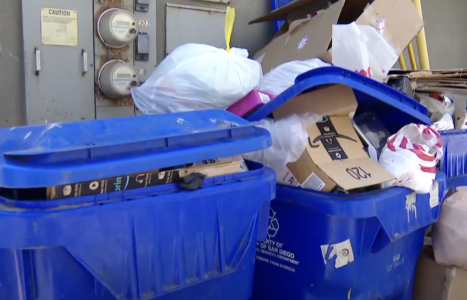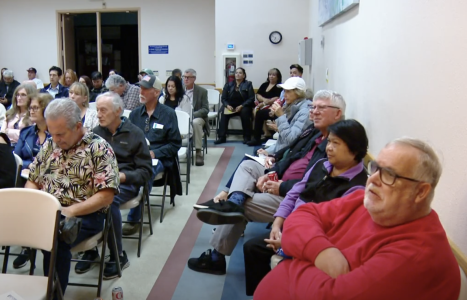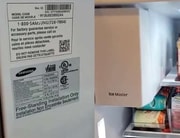Are you about to get hit with a $523 trash fee? What every American needs to know about this new waste law starting in July
- Replies 2
If you thought taking out the bins was already a chore, imagine having to pay over $500 a year for the privilege—no matter how little you throw away!
That’s the reality facing homeowners in one city, as a controversial new trash fee is set to kick in from July 1st.
And while this is happening only in one place, it’s a hot topic that’s got people talking about fairness, public services, and the rising cost of living—issues that hit close to home for many Americans, too.
A Century-Old Promise Broken
For 106 years, single-family homes in San Diego enjoyed free city trash pickup—a rare perk in a world where fees seem to multiply faster than rabbits.
But that’s all about to change on July 1st of this year. The city council has voted to impose a new solid-waste fee of $43.60 per month (that’s $523 a year), regardless of how much trash you actually generate.
The fee covers standard trash, recycling, and organic waste bins—three 95-gallon containers, to be precise.
This move has sparked outrage, especially among older adults and those on fixed incomes who feel they’re being punished for a service they’ve always received as part of their rates.

Many are asking: why should someone who barely fills a bin pay the same as a household that’s overflowing every week?
Why the Change?
City officials argue that the new fee is necessary to plug a massive $80 million hole in the city’s budget.
"With the passage of a new fee, General Fund resources can instead be allocated to projects and services, like public safety, parks and libraries, infrastructure improvements, and road repairs that benefit all city residents," the City of San Diego said.
Critics also spoke against a $4.5 million consulting fee used to fulfill the cost-of-service study.
Council President Joe LaCava warns against skipping the fee, saying, “Do you want to come up with another $80 million in cuts? I know I don’t.”
Meanwhile, Councilman Sean Elo-Rivera shared that the cost has been unfairly covered for a long time by residents who don’t even use city trash services. “This is not a new cost,” he told the people. “This is a cost that has been borne by those who do not receive city services.”
Also read: Is your credit card at risk? Here’s what you need to know about DOGE cutting 600,000+ accounts
But critics aren’t convinced. Many residents feel blindsided, especially after being told in a 2022 ballot measure that the fee would be closer to $23–$29 a month.
When the real numbers came out—up to $47.59 a month—people were understandably furious. Some have even threatened legal action, calling the move a “bait-and-switch” that erodes public trust.
Who’s Affected and What Are the Options?
The fee, called Measure B, applies to single-family homes that have never paid a separate charge for city trash pickup before. This was passed after city authorities said that around 285,000 homes would be impacted.
However, the Environmental Services Department discovered that the number is nearer to 226,495 households, according to the latest count.
Residents will be able to choose a different bin plan starting in July, and those who downsize from the default plan could get a credit on their account. New bins are expected to be delivered in October.

When the city released an updated cost study in April, the projected monthly rates surged to between $36.72 and $47.59, sparking public outcry.
In response, officials scaled back certain services—such as bulky item collection—and postponed an electric vehicle initiative to reduce the estimated range to $31.98–$42.76.
Despite these adjustments, the revised rates still provoked anger from residents, many of whom felt caught off guard and misinformed.
For those struggling to afford the new fee, the city has set aside $3 million for a financial aid program, offering full, half, or partial subsidies depending on income. Still, with the cost of living already sky-high, many are worried about how they’ll make ends meet.
Related story: Are you at risk of unexpected fees? This US state’s surprising new law could ban a grocery store staple
What is the Community Saying?
“Many folks in my district agreed that they needed to pay a fee,” Councilwoman Marni von Wilpert said. “But I’ve been told over and over again they wouldn’t have approved the higher fee.”
“I believe the final product is not what the majority of the city voted for,” stated Councilman Raul Campillo, who voted against the fee.
"I have owned my home for 50 years. I don't see any extra bonus from paying more money for something we have been paying for 100 years," said a resident.

The Bigger Picture: Waste, Recycling, and the Environment
Beyond the dollars and cents, there’s a bigger issue at play: waste management and environmental sustainability.
San Diego’s waste diversion rate is just 32%—well below the city’s goal of 80%. With the Miramar Landfill expected to reach capacity by 2031, officials say more needs to be done to reduce the amount of trash ending up in landfill.
Despite protests from over 45,000 residents, over 113,000 is needed to formally oppose and block the measure.
The council is expected to hold a meeting again on June 24 to discuss the fee being added to the property tax roll. Residents can begin changing their bin plans beginning on July 15 using the ESD portal.
Weekly recycling pickup could soon become the norm, and residents are being encouraged to think more carefully about what they throw away. Downsizing your bin not only saves money but also helps the environment—a win-win if you ask us!
Read next: Are you missing out on this week’s $1,439 SSDI payment? Find out if you qualify now!

Do you think it’s fair to charge everyone the same fee for trash collection, or should people pay based on how much they actually throw away? And what tips do you have for reducing household waste and saving money? Share your experiences and opinions in the comments below—let’s get the conversation started!
That’s the reality facing homeowners in one city, as a controversial new trash fee is set to kick in from July 1st.
And while this is happening only in one place, it’s a hot topic that’s got people talking about fairness, public services, and the rising cost of living—issues that hit close to home for many Americans, too.
A Century-Old Promise Broken
For 106 years, single-family homes in San Diego enjoyed free city trash pickup—a rare perk in a world where fees seem to multiply faster than rabbits.
But that’s all about to change on July 1st of this year. The city council has voted to impose a new solid-waste fee of $43.60 per month (that’s $523 a year), regardless of how much trash you actually generate.
The fee covers standard trash, recycling, and organic waste bins—three 95-gallon containers, to be precise.
This move has sparked outrage, especially among older adults and those on fixed incomes who feel they’re being punished for a service they’ve always received as part of their rates.

San Diego homeowners will soon be charged a new solid-waste fee of $523 per year—regardless of how much trash they produce—breaking a 106-year precedent of free pickup for single-family homes. Image source: CBS 8 San Diego / Youtube.
Many are asking: why should someone who barely fills a bin pay the same as a household that’s overflowing every week?
Why the Change?
City officials argue that the new fee is necessary to plug a massive $80 million hole in the city’s budget.
"With the passage of a new fee, General Fund resources can instead be allocated to projects and services, like public safety, parks and libraries, infrastructure improvements, and road repairs that benefit all city residents," the City of San Diego said.
Critics also spoke against a $4.5 million consulting fee used to fulfill the cost-of-service study.
Council President Joe LaCava warns against skipping the fee, saying, “Do you want to come up with another $80 million in cuts? I know I don’t.”
Meanwhile, Councilman Sean Elo-Rivera shared that the cost has been unfairly covered for a long time by residents who don’t even use city trash services. “This is not a new cost,” he told the people. “This is a cost that has been borne by those who do not receive city services.”
Also read: Is your credit card at risk? Here’s what you need to know about DOGE cutting 600,000+ accounts
But critics aren’t convinced. Many residents feel blindsided, especially after being told in a 2022 ballot measure that the fee would be closer to $23–$29 a month.
When the real numbers came out—up to $47.59 a month—people were understandably furious. Some have even threatened legal action, calling the move a “bait-and-switch” that erodes public trust.
Who’s Affected and What Are the Options?
The fee, called Measure B, applies to single-family homes that have never paid a separate charge for city trash pickup before. This was passed after city authorities said that around 285,000 homes would be impacted.
However, the Environmental Services Department discovered that the number is nearer to 226,495 households, according to the latest count.
Residents will be able to choose a different bin plan starting in July, and those who downsize from the default plan could get a credit on their account. New bins are expected to be delivered in October.

The $43.60 monthly fee automatically covers three large household bins, with options to switch to smaller plans and possibly receive credits; new bins are set to arrive in October. Image source: CBS 8 San Diego / Youtube.
When the city released an updated cost study in April, the projected monthly rates surged to between $36.72 and $47.59, sparking public outcry.
In response, officials scaled back certain services—such as bulky item collection—and postponed an electric vehicle initiative to reduce the estimated range to $31.98–$42.76.
Despite these adjustments, the revised rates still provoked anger from residents, many of whom felt caught off guard and misinformed.
For those struggling to afford the new fee, the city has set aside $3 million for a financial aid program, offering full, half, or partial subsidies depending on income. Still, with the cost of living already sky-high, many are worried about how they’ll make ends meet.
Related story: Are you at risk of unexpected fees? This US state’s surprising new law could ban a grocery store staple
What is the Community Saying?
“Many folks in my district agreed that they needed to pay a fee,” Councilwoman Marni von Wilpert said. “But I’ve been told over and over again they wouldn’t have approved the higher fee.”
“I believe the final product is not what the majority of the city voted for,” stated Councilman Raul Campillo, who voted against the fee.
"I have owned my home for 50 years. I don't see any extra bonus from paying more money for something we have been paying for 100 years," said a resident.

The change has sparked outrage, particularly among older and fixed-income residents, who argue the higher fees are unfair and feel misled by earlier promises of a lower charge. Image source: CBS 8 San Diego / Youtube.
The Bigger Picture: Waste, Recycling, and the Environment
Beyond the dollars and cents, there’s a bigger issue at play: waste management and environmental sustainability.
San Diego’s waste diversion rate is just 32%—well below the city’s goal of 80%. With the Miramar Landfill expected to reach capacity by 2031, officials say more needs to be done to reduce the amount of trash ending up in landfill.
Despite protests from over 45,000 residents, over 113,000 is needed to formally oppose and block the measure.
The council is expected to hold a meeting again on June 24 to discuss the fee being added to the property tax roll. Residents can begin changing their bin plans beginning on July 15 using the ESD portal.
Weekly recycling pickup could soon become the norm, and residents are being encouraged to think more carefully about what they throw away. Downsizing your bin not only saves money but also helps the environment—a win-win if you ask us!
Read next: Are you missing out on this week’s $1,439 SSDI payment? Find out if you qualify now!
Key Takeaways
- San Diego homeowners will soon be charged a new solid-waste fee of $523 per year—regardless of how much trash they produce—breaking a 106-year precedent of free pickup for single-family homes.
- The $43.60 monthly fee automatically covers three large household bins, with options to switch to smaller plans and possibly receive credits; new bins are set to arrive in October.
- The change has sparked outrage, particularly among older and fixed-income residents, who argue the higher fees are unfair and feel misled by earlier promises of a lower charge.
- City leaders argue the new fee will help solve budget shortfalls, fund public amenities, and make the system fairer, while also setting aside $3 million for financial aid and subsidies for lower-income households.
Do you think it’s fair to charge everyone the same fee for trash collection, or should people pay based on how much they actually throw away? And what tips do you have for reducing household waste and saving money? Share your experiences and opinions in the comments below—let’s get the conversation started!
Last edited:






